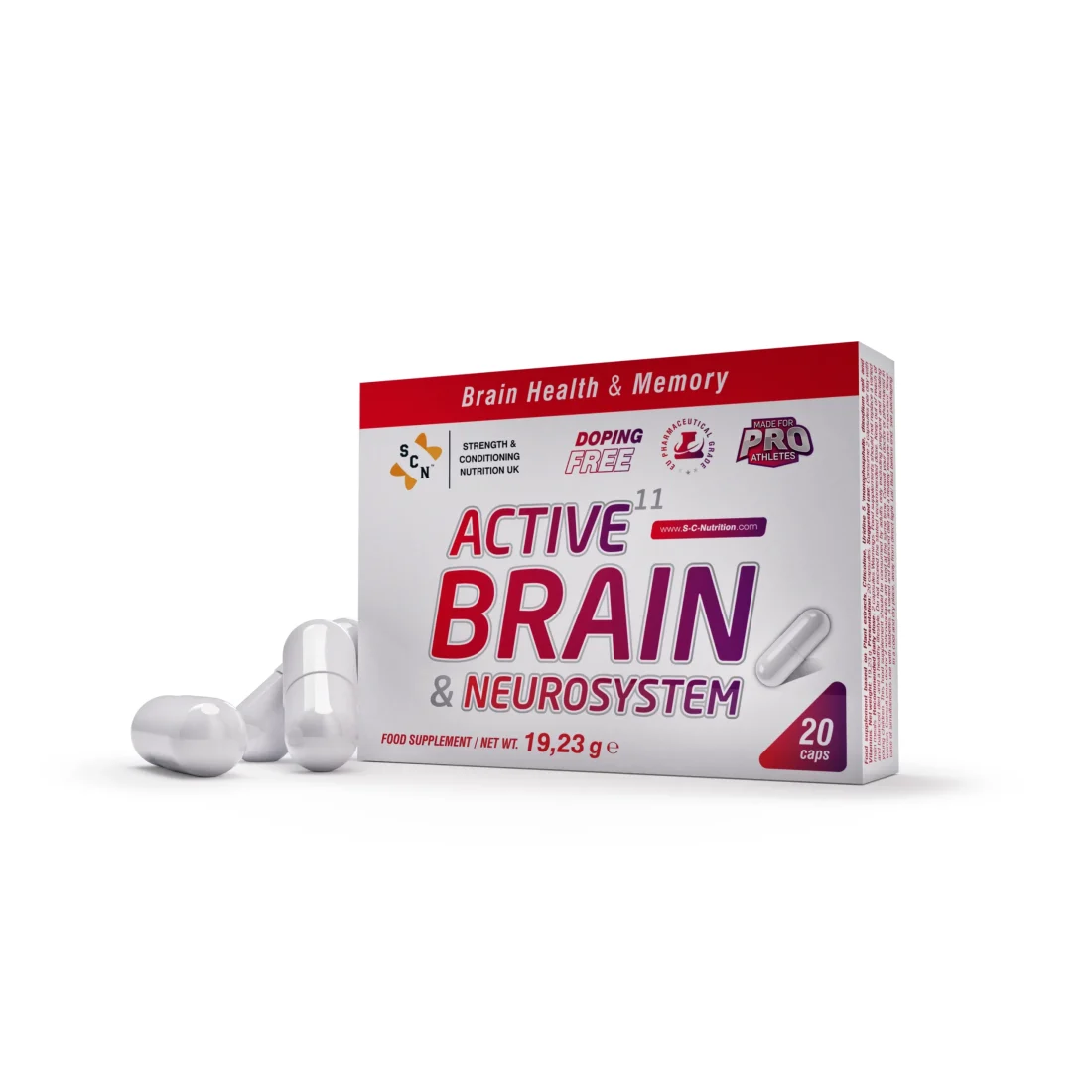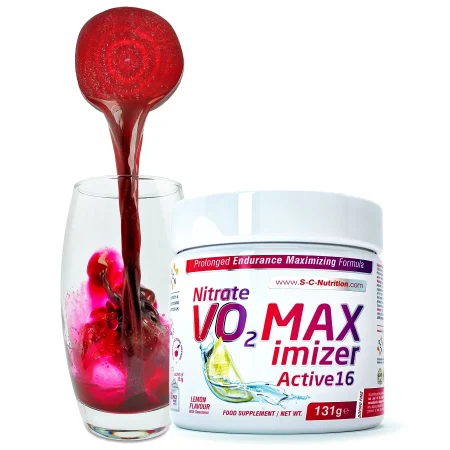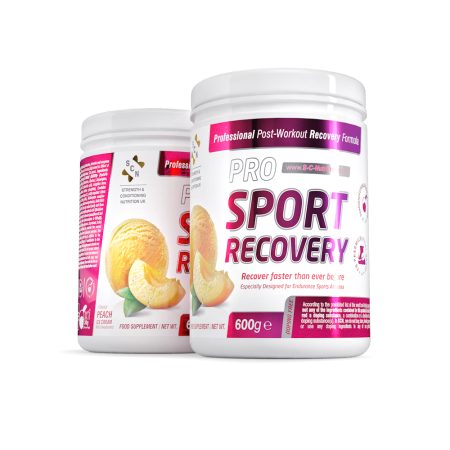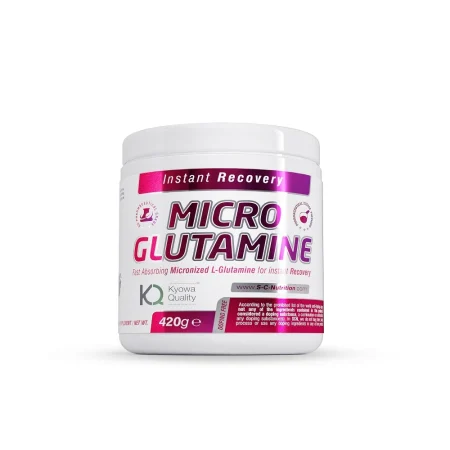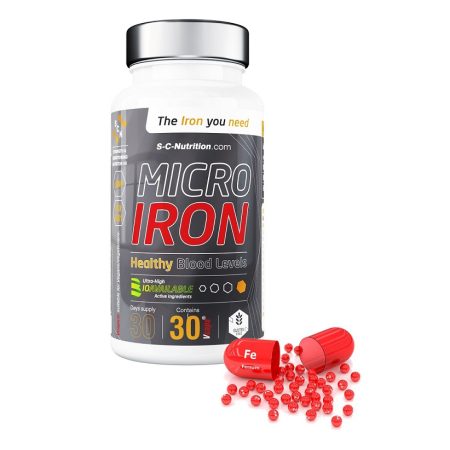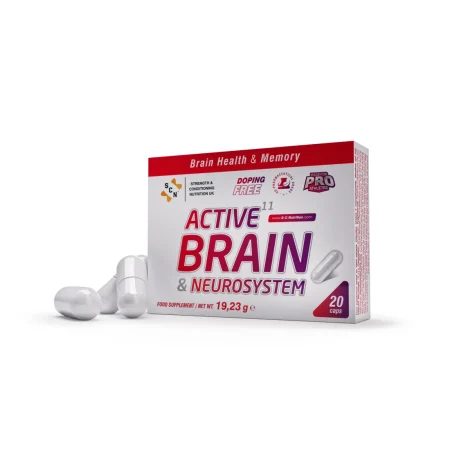Description
Active11 Brain & Neurosystem
The ultimate and most complete formula ever researched and developed, for super enhancing your brain function, focus, clarity, learning speed, kinesthetic learning speed.
- Think Faster
- Think Better
- Better Focus
- Optimum Clarity
- Fast Nerve Damage Recovery
- Improved Cognition
- Backed with research on Alzheimer and Parkinson
- Backed with research on memory loss
- BAcked with research on mood and depresion improvement
- Better Nervous System – CNS cooperation
- Faster Learning
- Enhanced focus
- Enhanced Mental Allertness
- Enhanced Brain Plasticity – Neurogenesis & Synaptogenesis
- Improved Mood and Motivation
…and many many more benefits
Active11 Brain & Neurosystem
A must-have formula for:
- Every Athlete who needs to fix his balance, his thechnique issues, his reflective moves
- Everyone with a damage on nerves (after an accident)
- Everyone who needs to have a fast-acting, clear brain with clarity and fast multitasking ability
- Everyone who needs to learn fast (Students during exams or demanding learning periods)
- Everyone who has a foggy brain, blur and slow thinking, especially adults over 50
- Everyone with any type of ADHD and procrastination, who needs better focus and a motive to work
- Everyone who needs to find ideas, working on a time-line project
Why Active11 Brain & Neurosystem?
Because you take 11 WHOLE boxes of brain supplements..in one box!
Active11 Brain & Neurosystem is an 11-ingredient, maximum dosage, unique formula, containing only maximum bioavalability and potency ingredients and herb extracts of pharmaceutical quality.
This formula will instantly help you feel all the benefits of each ingredient and the huge effectiveness of this unique synergistic product.
Full of nootropic brain nutrients, this mind, brain, memory, focus and neurosystem formula will make your brain working like a computer.
What is inside Active11 Brain & Neurosystem:
Nutrients per recommended daily dose:
| Ingredient | 2 capsules | %NRV* |
| Lion’s mane dry extract
30% polysaccharides |
500 mg
150 mg |
|
| Ribocare® UMP Ribonucleotide (Uridine 5 ‘monophosphate, disodium salt) | 260 mg | |
| Citicoline | 250 mg | |
| Panax Ginseng dry extract
80% gingenosides |
160 mg
128 mg |
|
| Bacopa Monnieri dry extract
45% bacosides |
150 mg
67,5 mg |
|
| Ginkgo Biloba dry extract
24% ginkgoflavoglycolic |
120 mg
28,8 mg |
|
| Kaneka Ubiquinol QH™ | 60 mg | |
| Maritime Pine dry extract
95% proanthocyanidins |
60 mg
57 mg |
|
| Veri-te™ pure Resveratrol | 50 mg | |
| Pyrroloquinoline quinone disodium salt | 20 mg | |
| Vitamin B6 | 4 mg | 285,7% |
| Vitamin B12 | 60 µg | 2400% |
| NADH Nicotinamide adenine dinucleotide | 5 mg |
*NRV Nutrient Reference Value
Lion’s mane dry extract
Lion’s Mane is packed with a vast array of potent bioactive compounds that stimulate Nerve Growth Factor (NGF). In a double-blind study, researchers found that supplementing with Lion’s Mane resulted in improved memory and cognitive function, provided it’s taken consistently.
Protect your brain with Lion’s Mane.
Lion’s Mane is a non-psychoactive, functional, and legal mushroom that stimulates memory, focus and cognition.
Lion’s Mane is also widely known as the Smart Mushroom for its brain-enhancing capabilities and our best-selling natural nootropic for this reason.
Human Pro Lion’s Mane is the most potent commercially available Lion’s Mane extract in the world.
- Stimulates memory & focus
- Stimulates Nerve Growth Factor (NGF)
- Stimulates your natural ability to learn & acquire new information
- Stimulates energy levels
- Can improve anxiety and depression
- Can provide strong immune support
- All active components are heavily concentrated & bioavailable
1. Could protect against dementia like Alzheimer’s or Parkinson’s disease
Lion’s Mane has two main bioactive compounds: Hericenones and Erinacines.
Hericenones assist the brain in producing more Nerve Growth Factor (NGF) and Erinacines helps with the production of new neurons, also known as neurogenesis (Source).
Lion’s Mane has been shown to be very effective in stimulating the creation of NGF in the brain. Once the blood-brain barrier has been crossed, Lion’s Mane is shown to stimulate the release of NGF, which treats and prevents nerve damage.
In general, when your brain grows older, its ability to form new connections decreases which explains why your mental capacity declines when you get older. Therefore, the production of more NGF in your brain could possibly help to relieve symptoms of neurodegenerative diseases, such as Alzheimer’s and Parkinson’s disease. This was already shown in animal studies that successfully protected mice from a progressive memory loss disease like Alzheimer’s (Source, Source, Source, Source).
2. May lower anxiety and depression
Almost 30 percent of people in today’s society experience symptoms of anxiety or depression (Source). While there are many factors that play a role in causing anxiety or depression, one important factor is chronic inflammation in the body.
Studies show that Lion’s Mane has strong anti-inflammatory effects that can reduce the symptoms of anxiety and depression (Source, Source).
In addition, other studies show that Lion’s Mane supports the regeneration of brain cells and improves the functioning of the hippocampus. The hippocampus is a region of the brain which deals with processing memories and emotions. It is believed that a better functioning hippocampus may explain a relief in anxiety, irritation, and depression (Source, Source).
It is important to note that while studies already look very promising, more human studies are needed to completely confirm these benefits.
3. May speed up recovery from nervous system injuries
Studies show that Lion’s Mane extract may help to speed up recovery from injuries to the brain (stroke), spinal cord, and other nerves in the body. It does this by stimulating the growth and repair of nerve cells in the body (Source, Source, Source).
In a study conducted on rats, Lion’s Mane has been shown to reduce the time that is needed to recover from a nervous system injury by 23 to 41 percent (Source).
In another study, high doses of lion’s mane mushroom extract given to rats immediately after a stroke helped decrease inflammation and reduce the size of stroke-related brain injury by 44% (Source).
However, as these studies look very promising, more human studies are needed to confirm this benefit for humans.
4. Could reduce heart disease risk
The most often named factors for heart disease are obesity, high triglycerides, large amounts of oxidized cholesterol, and an increased tendency to get blood clots.
Recent studies have shown that Lion’s Mane extract can improve some of these factors and could therefore reduce the risk of heart disease.
For example, Lion’s Mane has been shown to lower obesity and triglycerides. One study in rats and mice shows that Lion’s Mane extract has improved fat metabolism and lowered triglyceride levels in the body (Source). Another one saw 27% lower triglyceride levels and 42% less weight gain after a month (Source).
Furthermore, a study found out that Lion’s Mane extract can lower the levels of oxidation of cholesterol in the bloodstream of the body (Source). The oxidation of cholesterol molecules causes them to become harder and therefore increases the risk of heart disease. And Lion’s Mane contains Hericenone B which decreases the rate of blood clotting in your bloodstream, which also lowers the risk of a stroke or heart attack (Source).
5. Helps manage diabetes symptoms
Diabetes disease prevents your body from properly regulating the sugar levels in your blood. Your body constantly regulates the levels of sugar in your blood, and if you constantly have high blood sugar levels, it might cause issues with your kidney, loss of nerves in the hands and feet, and loss of vision.
It is shown that Lion’s Mane mushroom has the power to improve blood sugar levels and also to help with lowering symptoms in the body (Source).
In multiple animal studies, it was shown that Lion’s Mane can lower blood sugar levels in normal and diabetic mice. This effect was even significant with low doses (Source, Source). Lion’s Mane has the power the block the activity of certain enzymes (alpha-glucosidase) that break down carbs in your digestive tract (Source). If this enzyme is blocked, the body is unable to digest and absorb carbs as effectively, which results in lower blood sugar levels.
Also, Lion’s Mane may have the power to lower nerve pain in your hands and feet. This was tested for six weeks on mice with nerve damage, who got Lion’s Mane on a daily basis, and as a result showed significantly less pain, lower blood sugar levels, and more antioxidants in their system (Source).
6. Improves your cognition
Besides stimulating the production of NGF, Lion’s Mane is also widely used in order to enhance focus and mental alertness. Users report a clearer state of mind and experience less brain fog. This is why many people use Lion’s Mane in order to achieve better focus and enter into deeper flow states. This helps with being more productive at work or studying.
In a human trial study, they let older people with mild cognitive impairment consume Lion’s Mane on a daily basis, for four months in a row. During this period they saw significant improvements in their mental capacity, and after they stopped supplementing Lion’s Mane, the benefits disappeared (Source).
Ribocare® UMP Ribonucleotide
- Reduce general cognitive decline.
- Increase free phosphatidylcholine (PC)
- Increase acetylcholine in your brain.
- Increase receptor (neurogenesis), and synapse (synaptogenesis) densities.
- Improve cellular phospholipid membrane health.
- Boost learning and memory.
Citicoline
Not only does citicoline protect the brain, but it also has an excellent safety profile. Several clinical studies indicate citicoline’s therapeutic potential in various neurological conditions, including age-related cognitive decline and stroke treatment and recovery
Unlocking Brain Power: 17 Remarkable Benefits of Citicoline (CDP-Choline)
Citicoline is a naturally occurring compound.
It plays a crucial role in the synthesis of phosphatidylcholine, a major component of brain cell membranes.
It is found in trace amounts in certain foods, but it’s typically taken as a dietary supplement.
Citicoline has been extensively researched for its cognitive benefits, including improved memory and focus.
Additionally, it has been shown to promote neuroprotection and support stroke recovery.
By supplementing with Citicoline, you can experience a boost in cognitive performance and overall brain health.
What is Citicoline?
Citicoline, also known as CDP-choline or cytidine diphosphate-choline, is classified as a nootropic substance due to its cognitive-enhancing effects.
It is a precursor to both choline and cytidine.
Choline and cytidine are both necessary for the synthesis of essential cell components, particularly in the brain.
Citicoline was first discovered in 1956 by Kennedy and Weiss. They identified it as a key molecule in the Kennedy pathway, which is a metabolic process responsible for the biosynthesis of phosphatidylcholine in the body.
Small amounts of Citicoline can be found in foods such as eggs, liver, and certain legumes. But it is more commonly consumed as a supplement.
When taken as a supplement, Citicoline has been shown to provide various cognitive benefits, including improved memory and focus.
Additionally, Citicoline demonstrates neuroprotective properties. It has been linked to aiding stroke recovery.
How Does Citicoline Work in the Brain?
Citicoline works by increasing the levels of choline and cytidine in the brain. This helps produce more phosphatidylcholine and other essential neurotransmitters, such as acetylcholine. This then supports cognitive function, memory, and learning.
When consumed as a supplement, Citicoline is absorbed through the gastrointestinal tract and metabolized in the liver. It is then broken down into choline and cytidine.
Choline and cytidine then enter the bloodstream and cross the blood-brain barrier, reaching the brain. Inside the brain, choline and cytidine are recombined to form Citicoline again.
Citicoline then participates in the synthesis of phosphatidylcholine, a major component of cell membranes, particularly in brain cells. This process helps maintain the integrity and fluidity of cell membranes, ensuring proper cell signaling and communication.
Citicoline also indirectly supports the production of neurotransmitters, such as acetylcholine, which is essential for memory and learning.
Citicoline also demonstrates neuroprotective effects by reducing the production of harmful free radicals and pro-inflammatory substances in the brain. This helps protect brain cells from oxidative stress, inflammation, and age-related degeneration.
For example, it helps regulate glutamate, an excitatory neurotransmitter that can cause neuronal damage when present in excessive amounts.
Lastly, Citicoline has been shown to enhance brain plasticity, promote the growth of new neural connections, and reduce inflammation and damage in the brain.
17 Proven Benefits of Citicoline (CDP-Choline)
1. Citicoline Enhances Memory

Citicoline has been shown to improve memory.
This is partially attributed to its role in increasing acetylcholine levels, a neurotransmitter essential for memory and learning.
Multiple studies have demonstrated the memory-enhancing effects of Citicoline.
In one study, older adults with age-related memory impairments took Citicoline for 12 weeks.
The study participants received either 1,000 mg or 500 mg of Citicoline daily.
They experienced improvements in memory after taking it (1).
Researchers have also examined the effects of Citicoline on healthy adult women.
The women took 250 mg or 500 mg daily doses of Citicoline for 28 days.
It led to significant improvements in cognitive function, including memory (2).
Lastly, a team of researchers analyzed various studies on Citicoline‘s effects on stroke recovery.
They concluded that patients who received Citicoline showed improvements in memory and cognitive function (3).
These studies, among others, provide strong evidence for the memory-enhancing effects of Citicoline.
2. Citicoline Improves Focus and Attention
Citicoline supports the synthesis of essential neurotransmitters, such as acetylcholine and dopamine, which play vital roles in attention and focus.
By increasing the availability of these neurotransmitters, Citicoline helps improve attention and focus.
Research has found this to be true.
Several studies have shown that Citicoline supplementation can help enhance attention, focus, and concentration.
In one study, healthy adult women took 250-500 mg daily doses of Citicoline for 28 days.
The researchers found that the women experienced significant improvements in attentional performance (4).
In another study, researchers found that healthy adults who took Citicoline for six weeks experienced improvements in attention and cognitive function (5).
And then a randomized, double-blind, placebo-controlled study looked at the effects of Citicoline on cognitive performance in healthy male volunteers.
The researchers found that participants who received Citicoline showed significant improvements in attention, working memory, and cognitive flexibility (6).
Considering all of this research, it’s very clear that Citicoline can be particularly beneficial for students, professionals, or anyone seeking to improve their focus and overall cognitive performance.
3. Citicoline Is Neuroprotective
Citicoline is known to be neuroprotective.
It protects brain cells from damage and degeneration.
It does this by maintaining the integrity of cell membranes, reducing oxidative stress, and decreasing inflammation in the brain
These effects contribute to overall brain health. They can also protect against cognitive decline and neurodegenerative conditions.
Several studies have demonstrated the neuroprotective effects of Citicoline, particularly in cases of ischemic stroke, traumatic brain injury, and cognitive decline (7-9).
Researchers found that Citicoline can help regulate the levels of glutamate, an excitatory neurotransmitter. Glutamate can cause neuronal damage when present in excessive amounts (9).
4. Citicoline Helps With Stroke Recovery
Studies have shown that Citicoline can aid in the recovery process after a stroke.
It does this by enhancing brain plasticity, promoting the growth of new neural connections, and reducing inflammation and neuronal damage.
As a result, it is often used as an adjunct therapy alongside conventional stroke treatments.
Citicoline seems to be particularly helpful in patients who have suffered from ischemic strokes.
Ischemic stroke occurs when blood flow to the brainis blocked, leading to a lack of oxygen and nutrients. This can then cause cell death and neurological damage.
A pooled analysis of clinical trials looked at the effects of Citicoline in acute ischemic stroke.
The researchers found that patients who received Citicoline experienced improved functional and cognitive outcomes (10).
Another research review assessed the role of Citicoline in neuroprotection and neurorepair in ischemic stroke.
The authors concluded that Citicoline was generally well-tolerated and could improve functional and cognitive outcomes in stroke patients. This was especially true when administered early in the treatment process (11).
5. Citicoline Improves Mood and Motivation
Citicoline has been linked to increased levels of dopamine, a neurotransmitter associated with motivation, pleasure, and reward.
This effect can help improve mood, motivation, and overall well-being.
As a result, some studies have proposed that Citicoline has antidepressant-like effects.
In one study, researchers investigated the effects of Citicoline supplementation on mood and mental energy.
The trial included 60 healthy adult participants. They received either Citicoline (250 mg/day or 500 mg/day) or a placebo for six weeks.
The participants who received Citicoline reported improvements in their mood and mental energy (12).
6. Citicoline Improves Learning
Citicoline has been shown to improve learning.
It does this by promoting various aspects of cognitive function, including memory, attention, and neuroplasticity.
In one study, researchers investigated the effects of Citicoline on learning and memory in adults.
This trial included 60 healthy adults. They received either Citicoline (250 mg/day or 500 mg/day) or a placebo for 28 days.
The researchers found that participants who received Citicoline exhibited improved performance in a variety of cognitive tasks, including those related to learning (13).
7. Citicoline Increases Acetylcholine in the Brain

Acetylcholine is a crucial neurotransmitter involved in various aspects of cognitive function, including learning, memory, and attention.
When Citicoline is ingested and metabolized, it is broken down into choline.
Choline can then cross the blood-brain barrier and enter the brain.
Once in the brain, choline is used to synthesize acetylcholine.
As a result, Citicoline has been shown to increase choline and acetylcholine levels in the brain. This then contributes to improved cognitive function.
Several studies have demonstrated that Citicoline supplementation can lead to increased acetylcholine levels in the brain.
In one study, researchers investigated the effects of Citicoline on cholinergic neurotransmission.
The results showed that Citicoline increased the release of acetylcholine in the hippocampus, which is a brain region critical for learning and memory (14).
Another study looked at the effects of Citicoline on the expression of brain plasticity markers.
The authors found that Citicoline led to increased levels of acetylcholine in the brain (15).
This is just two of the many studies showing that Citicoline supplementation can increase acetylcholine levels in the brain.
8. Citicoline Reduces Inflammation in the Brain
Inflammation plays a significant role in the development and progression of various neurological disorders. This includes Alzheimer’s disease, Parkinson’s disease, and stroke.
But Citicoline has been shown to possess anti-inflammatory properties, and it can help reduce inflammation in the brain.
For example, Citicoline significantly reduces the production of pro-inflammatory cytokines in the brain (16).
In one study, researchers examined the effects of Citicoline on oxidative stress and inflammation in a mouse model of Alzheimer’s disease.
The authors found that Citicoline reduced oxidative stress and inflammation in the brain. This reduction in inflammation was then associated with improved cognitive function in the mice (17).
By reducing brain inflammation, Citicoline can help maintain brain health, and help prevent the development of neurodegenerative diseases.
9. Citicoline Enhances Brain Plasticity
Brain plasticity is the brain’s ability to change and adapt in response to new experiences.
Brain plasticity plays a crucial role in the formation of new connections between neurons (synaptogenesis) and the growth of new neurons (neurogenesis).
Both synaptogenesis and neurogenesis are essential for learning, memory, and recovery from brain injuries.
Citicoline has been shown to enhance brain plasticity, synaptogenesis and neurogenesis.
In one study, researchers investigated the effects of Citicoline on the expression of brain plasticity markers in a rat model of stroke.
The results showed that Citicoline led to increased expression of plasticity-related proteins and growth factors, such as BDNF and NGF (18).
Another study found that Citicoline enhances brain plasticity and promotes recovery after stroke (19).
10. Citicoline Helps With Cognitive Decline, Mild Cognitive Impairment, and Alzheimer’s Disease
Cognitive decline is characterized by a gradual decrease in mental functions, including memory, attention, and problem-solving abilities.
Citicoline has been shown to slow down cognitive decline, particularly in aging individuals and those suffering from neurodegenerative diseases such as Alzheimer’s disease
Several studies have demonstrated the benefits of Citicoline in slowing down cognitive decline.
One study looked at the long-term effects of Citicoline in elderly patients with mild cognitive impairment.
The researchers found that 9 months of Citicoline supplementation significantly improved cognitive performance in these patients (20).
Another study investigated the effects of Citicoline on cognitive decline in patients with Alzheimer’s disease.
The trial found that patients who received Citicoline for 12 months experienced a slower decline in cognitive function (21).
And then a systematic review evaluated the efficacy of Citicoline in treating cognitive and behavioral disturbances in elderly patients.
The authors concluded that Citicoline showed some benefits in improving cognitive and behavioral symptoms in these patients (22).
Citicoline‘s ability to slow down cognitive decline can be attributed to several mechanisms. It can enhance neurotransmitter production, support brain cell membrane integrity, increase brain plasticity, and reduce inflammation.
11. Citicoline Helps Treat ADHD
Emerging evidence indicates that Citicoline can have a positive impact on attention deficit hyperactivity disorder (ADHD) symptoms, such as inattention and impulsivity This is likely due to its influence on dopamine and acetylcholine levels.
In one study, researchers examined the effects of Citicoline on adolescents with ADHD.
The study included 48 male participants aged 13-18 years. They received either Citicoline (250 mg/day or 500 mg/day) or a placebo for 28 days.
The results showed that participants who received Citicoline experienced improvements in attention, impulsivity, and overall ADHD symptoms (23).
Another review article also discusses the impact of Citicoline on brain reward function and its potential for the treatment of psychiatric disorders, including ADHD.
The authors suggest that Citicoline can help modulate dopamine pathways and improve cognitive functions in individuals with ADHD (24).
The mechanisms through which Citicoline benefits individuals with ADHD include enhancing neurotransmitter production, supporting brain cell membrane integrity, and increasing brain plasticity.
12. Citicoline Helps Treat Traumatic Brain Injuries and Concussions
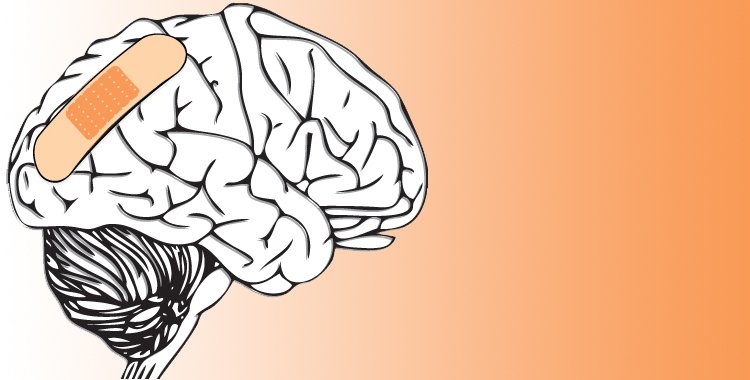
Traumatic brain injury (TBI) is a disruption in normal brain function caused by a bump, blow, or jolt to the head, or a penetrating head injury.
Concussions are a form of mild TBI.
Both can lead to a wide range of symptoms such as headache, confusion, memory problems, and dizziness.
Several studies have examined the effects of Citicoline in people with traumatic brain injuries and concussions.
In a review article, researchers discussed the potential of Citicoline in treating various neurological disorders, including TBIs. They mention that Citicoline can help repair damaged brain cells and improve cognitive function after brain injury (29).
In one study, patients with head injuries were given Citicoline. The treatment resulted in improvements in memory and behavior. The researchers concluded that Citicoline can help treat post-concussion symptoms (30).
In another study, researchers investigated the effects of Citicoline on cognitive and motor function.
The results demonstrated that Citicoline improved both cognitive and motor function (28).
It’s believed that Citicoline can aid in the recovery process following traumatic brain injury by promoting neuroplasticity, enhancing neurotransmitter production, reducing inflammation, and repairing and regenerating brain tissue.
13. Citicoline Helps Treat Tinnitus
Tinnitus is a condition characterized by the perception of ringing, buzzing, or other noises in the ears.
There is some research suggesting that Citicoline can provide some relief to people with tinnitus.
In one retrospective case review, researchers examined the records of 24 patients who were treated with Citicoline for tinnitus.
The review found that 54% of the patients experienced a reduction in their tinnitus after taking Citicoline for at least 12 weeks (31).
It’s likely that Citicoline helps with tinnitus due to its neuroprotective and neurotransmitter modulating effects.
14. Citicoline Helps Treat Parkinson’s Disease
Parkinson’s disease is a progressive neurological disorder.
It is characterized by the death of dopamine-producing neurons in the brain, leading to motor and cognitive symptoms.
Research indicates that Citicoline can provide some benefits for individuals with Parkinson’s disease. It could help improve cognitive function and enhance the effectiveness of conventional Parkinson’s medications.
A review article discusses the potential benefits of Citicoline in treating various neurological disorders, including Parkinson’s disease.
The authors suggest that Citicoline could protect neurons from damage, enhance the production of neurotransmitters such as dopamine, and improve cognitive function in people with Parkinson’s disease (32).
In one study, researchers investigated the effects of Citicoline on patients with Parkinson’s disease. They found that Citicoline improved motor function and reduced the severity of their symptoms (33).
Another study looked at the effects of Citicoline on patients with Parkinson’s disease who were also receiving Levodopa.
The results indicated that Citicoline has some positive effects on cognitive function in patients with Parkinson’s disease (34).
15. Citicoline Supports Mitochondrial Function in the Brain
Mitochondria are the energy-producing organelles in cells.
Their optimal function is essential for maintaining cellular health and energy metabolism.
By supporting the mitochondrial in your brain, you can maintain overall brain health and prevent the development of neurodegenerative diseases.
Citicoline is one way to support mitochondrial function.
It can help improve energy production in the brain.
Research shows that it enhances brain energy metabolism by increasing the production of ATP (adenosine triphosphate). ATP is the primary energy source for cells.
This increased energy availability can contribute to reduced fatigue and better cognitive performance.
In one study, researchers looked at the neuroprotective effects of Citicoline.
The results showed that Citicoline improved mitochondrial function in the brain (35).
Citicoline has the potential to support mitochondrial function in the brain through various other mechanisms as well. This includes providing precursor molecules for phospholipid synthesis and reducing oxidative stress.
16. Citicoline Improves Reaction Time and Reduces Cognitive Fatigue
Reaction time is an essential cognitive function. It influences various aspects of daily life, such as decision-making, driving, and sports performance.
Meanwhile, cognitive fatigue is the decline in cognitive performance and mental energy levels during sustained periods of mental effort.
Research shows that Citicoline can help enhance reaction time, increase cognitive energy, and improve processing speed.
In one study, researchers investigated the effects of Citicoline supplementation on motor speed, attention, and reaction time.
The participants received either Citicoline (as Cognizin) or a placebo for 28 days.
The results showed that the Citicoline group exhibited significant improvements in motor speed, attention, and reaction time (36).
It accomplishes this by increasing neurotransmitter production and improving cell membrane integrity.
17. Citicoline Improves Verbal Fluency
Verbal fluency is a cognitive function that involves the ability to generate words quickly and accurately. It’s essential for language production, communication, and executive functioning.
In one study, researchers gave Citicoline to older adults who had poor memory.
Participants received either Citicoline or a placebo for 12 weeks.
The results showed that Citicoline significantly improved their verbal memory performance (37).
The study did not directly measure verbal fluency as an outcome. However, improvements in verbal memory are associated with enhancements in verbal fluency.
Panax Ginseng dry extract
Panax ginseng contains many active chemicals. The most important are called ginsenosides or panaxosides. Panax ginseng is taken by mouth for memory and thinking skills, Alzheimer disease, depression, and many other conditions.
Ginseng is traditionally used to protect the nervous system. Ginseng is effective in memory improvement, and in the direct prevention of degenerative brain diseases such as Alzheimer’s disease. The neuroprotective effect of ginseng may be useful in the prevention of depression.
Ginseng is an adaptogenic herb that supports the body and increases resilience to stress, fatigue and brain fog. It has been used extensively in traditional Chinese medicine for memory support and to improve endurance.
Ginseng is one of the best herbs for memory due to its potential ability to prevent memory loss and reduce age-related memory declines. One of the most popular plants in herbal medicine, ginseng contains anti-inflammatory chemicals called ginsenosides
Bacopa Monnieri dry extract
The main indications for using Bacopa in Ayurvedic medicine are memory improvement, insomnia, epilepsy, and as an anxiolytic. Many clinical studies have demonstrated improvements in verbal learning, delayed word recall, memory acquisition, and anxiety reduction with using Bacopa.
Bacopa monnieri has been used by Ayurvedic medical practitioners for centuries for a variety of purposes, including improving memory, reducing anxiety, and treating epilepsy ( 2 ). In fact, research shows that it may boost brain function and alleviate anxiety and stress, among other benefits.
Bacopa Monnieri has been found to increase serotonin levels in the hippocampus as well as increasing the Serotonin Transporter (SERT)
Ginkgo Biloba dry extract
Several studies show that ginkgo has a positive effect on memory and thinking in people with Alzheimer disease or vascular dementia. Studies suggest that ginkgo may help people with Alzheimer disease: Improve thinking, learning, and memory (cognitive function)
Ginkgo preparations may affect the behavioural and cognitive aspects of ADHD. The predominant behavioural effects are calming and improved frustration tolerance. Ginkgo biloba induces willful cognition, discriminant attention and decreases irritability.
Ginkgo has a long history of use in treating blood disorders and memory issues. It is best known today as way to potentially keep your memory sharp. Laboratory studies have shown that ginkgo improves blood circulation by opening up blood vessels and making blood less sticky. It is also an antioxidant.
Kaneka Ubiquinol QH™
NADH + UBIQUINOL:
- Fatigue and tiredness, chronic fatigue syndrome
- Contributes in cellular energy production
- Decreases Reaction Time (Better Explossive Strength)
- Improves Mental Alertness
- Increases peak power performance
- Improves coordination and CNS function during training
- Improves Sport Skills
- Improves Anaerobic & Aerobic threshold and capacity
- Prevents Rhabdomyolsis
- Improves ATP-CP Energy system for over 50%
What is Ubiquinol?
Ubiquinol is the active and non-oxidized form of CoQ10 (Coenzyme Q10) readily usable by your body.
What is the difference between Ubiquinol and regular CoQ10?
Ubiquinol is the most readily absorbed form of CoQ10 and is one of the most powerful fat-soluble antioxidants in the body. Ubiquinol is also the major form of CoQ10 in the body (over 95%).
CoQ10 is a required nutrient found in every cell of your body and is vital for providing energy to your cells, helping your organs perform at their best and protecting your cells and blood from oxidation.
What’s the difference between Ubiquinol and CoQ10?
Ubiquinol and Ubiquinone are both forms of CoQ10, and both are necessary to produce cellular energy.
Ubiquinone – the oxidized form
Ubiquinone is the oxidized form of CoQ10 and has been taken as a supplement and studied for more than 30 years. Over the past three decades, CoQ10 has been recognized for its benefits to general health and wellness as well cardiovascular and neurological health.
Ubiquinol – the active form
To generate cellular energy, the body must convert ubiquinone into ubiquinol.
Without this conversion, the body’s energy production process cannot be completed and energy levels cannot be sustained. Thus, both are critical to sustaining your body’s natural energy. The reduced form of Ubiquinol has only became available in supplement form in recent years and is now available internationally.
The difference between CoQ10 & Ubiquinol
Ubiquinol and Ubiquinone are both forms of CoQ10, and both are necessary to produce cellular energy.
Ubiquinone is the oxidized form of CoQ10 and has been taken as a supplement and studied for more than 50 years.
Over the past five decades, CoQ10 has been recognized for its benefits to general health and wellness as well as cardiovascular and neurological health.
Ubiquinol is the reduced (not oxidized) form of CoQ10, and is essential in the body’s natural production of cellular energy and provides powerful antioxidant protection to cells. Without it, the body cannot sustain energy.
It has become available in supplement form in recent years and is now available internationally.
Fast facts
- 18 clinical studies have highlighted the superior efficacy of Ubiquinol over conventional Coenzyme.
- Ubiquinol is 3-8 times more absorbable than conventional Coenzyme Q10.
- Ubiquinol helps to protect the body’s cells from damage caused by oxidative stress and free radicals.
- Ubiquinol superior absorption ability when compared to CoQ10 means you can take a lower dose for the same effect.
Energy and Performance
Feeling tired or fatigued? You may be suffering from low levels of Ubiquinol in your body. Your body needs Ubiquinol to generate energy. It acts within your cells to naturally increase energy levels.
Ubiquinol plays a big role in transferring electrons to generate cellular energy, known as ATP, the molecule that transfers chemical energy within cells for metabolism.
Doctors and researchers now consider Ubiquinol’s antioxidant features which Ubiquinone does not have, to be one of the most important functions in the body’s cellular systems and cellular energy production process.
Exercise & Energy
Testosterone Boosters can also boost the power production of trained athletes. Athletes who received Ubiquinol increase their power per kilogram of body weight by over 2.5 percent in just six weeks.
The study, published by the Journal of Sports Nutrition, found Ubiquinol supplementation resulted in significantly enhanced physical performance compared to athletes who received a placebo.
Fatigue
Have you ever wondered why you can’t shake the feeling of fatigue, no matter how much you rest and how good your sleep is? When you’re too tired, sometimes games like Betwiz promote relaxation.
The answer may lie in depleted levels of Ubiquinol, the antioxidant found naturally in the body that is responsible for supporting energy production.
Research indicates that as we age, our natural Ubiquinol levels decline and our ability for our body to restore these levels declines too[1].
Ubiquinol is the “spark plug” that helps fire energy production in your cells.
When we age, or when we are under prolonged stress due to lifestyle, diet or environmental factors, our natural Ubiquinol levels may become depleted and the ability to produce Ubiquinol declines. That’s why some use CBD Oil to defeat the stress.
In addition to this, the free radical activity and oxidative stress that occurs in our body from normal metabolism, even in healthy individuals, increases as we get older[2].
One of the main roles of antioxidants in the body is to help combat free radical activity and oxidative stress. As such, antioxidants like Ubiquinol may help to minimise the impairment of normal functioning cells thereby help to support healthy ageing by restoring essential levels of Ubiquinol back into your system.
When your energy production is low, it affects your natural energy levels in your organs such as heart and liver, which means they are unable to function optimally. This may be the reason why you are feeling sluggish and generally tired.
How can Ubiquinol help?
In order to receive the minimum required amount of Ubiquinol each day (100 – 150mg), one would need to eat 3.4kg of red meat, 5.7kg of chicken or 50 cups of spinach.
Scientific studies have indicated that Ubiquinol in an active and readily bioavailable form may be an efficient way to help restore healthy levels of Ubiquinol and support optimal energy levels.
References
[1] Lambrechts, P & Siebrecht S ‘Agro Food Industry Hi Tech’, March/April 2013 vol. 24 (2)
[2] Hosoe K et al, Study on safety and bioavailability of Ubiquinol (Kaneka QHTM) after single and 4-week multiple oral administration to healthy volunteers. Regul Toxicol Pharmacol 2007; 47: 19–28
[3] Ikematsu, H et al, Safety assessment of coenzyme Q10 (Kaneka Q10) in healthy subjects: A double-blind, randomized, placebo-controlled trial. Regul Toxicol Pharmacol 2006; 44: 212–218
[4] Shults CW et al, Pilot trial of high dosages of coenzyme Q10 in patients with Parkinson’s disease. Exper Neurol 2004; 188:491– 494
[5] Kubo, H et al Food Content of Ubiquinol 10 + Ubiquinone 10 in the Japanese Diet, Journal of Food Composition and Analysis, 2008, 199-210
Maritime Pine dry extract
Maritime pine trees (Pinus pinaster) grow in countries on the Mediterranean Sea. Its bark may be helpful for asthma and improved leg circulation. Maritime pine contains chemicals that might improve blood flow, stimulate the immune system, reduce swelling, prevent infections, and have antioxidant effects.
Brain Studies – Benefits
- May reduce your risk of Alzheimer’s by protecting neurons from beta-amyloid plaques in the brain.
- Promotes healthy brain function. A 2011 Italian trial administered a pine bark extract supplement to students for eight weeks, resulting in improved concentration, memory and mood, and a decrease in anxiety levels. This was thought to be the result of improved blood flow to the brain. An earlier study showed improved memory in healthy elderly people, and reduced oxidative stress markers.
- Can reduce ADHD symptoms in children. A small initial trial showed that pine bark extract reduces oxidative damage, increases antioxidant levels and improves immunity and neurochemical balance in children with attention deficit hyperactivity disorder (ADHD). It also showed a reduction in associated physical and psychiatric complaints. Researchers evaluated pine bark extract as an alternative to Methylphenidate (e.g. Ritalin), which has several serious side effects, including arrhythmia, insomnia and decreased appetite. PBE was indicated to be at least as effective as Methylphenidate, without serious side effects, and more effective than placebo in this preliminary trial. A larger follow-up trial was announced in 2017.
General Benefits:
- Alleviates oxidative stress by increasing the production of anti-oxidative enzymes that scavenge free radicals.
- As an anti-inflammatory, pine bark extract can decrease the amount of circulating inflammatory substances in the blood stream.
- Improves the absorption of other antioxidants, especially vitamins C and E.
- Its antioxidant activity improves the skin’s natural UV protection and gradual aging caused by the sun.
- Promotes wound healing by improving circulation and calming inflammation.
- Supports the immune system and helps to fight infection and prevent autoimmune responses, through a combination of antibacterial, anti-inflammatory and antioxidant activity.
- Antibacterial: pine bark extract has been shown to stave off staphylococcal, E. coli and pseudomonas bacterial infections.
- Can reduce the risk of heart disease by lowering your levels of harmful cholesterol (LDL) and increasing good cholesterol (HDL).
- May lower blood pressure and improve poor circulation. Pine bark extract helps the body to produce nitric oxide, which improves circulation and relaxes blood vessels to lower blood pressure.
- Can help with varicose veins: a 2015 study showed that pine bark extract can improve circulation and reduce the swelling of varicose veins.
- Anti-carcinogenic: studies indicate pine bark extract may be able to slow the growth of tumor cells in lung cancer and skin cancer.
- Improves the health of the lungs. Pine bark extract has been shown to be effective in treating chronic lung disease.
- Can treat and prevent loss of hearing and balance caused by ear infections or toxicity.
- Can lower glucose levels in diabetics.
- Anti-allergic: reduces the symptoms of allergies by calming the auto-immune response.
- Anti-inflammatory effects in asthma
- As an analgesic, it has been shown to help reduce menstrual cramps.
- Promotes exercise endurance and reduces muscle fatigue in athletes, by reducing oxidative stress and therefore inflammation.
- May help with erectile dysfunction, according to one Japanese study, without the side effects of conventional medications.
- Can slow the progression of osteoarthritis, and reduce joint pain, mainly through its anti-inflammatory activity.
- Can protect the eyes from retinal micro-haemorrhages, by increasing blood flow to the eyes.
- May reduce your risk of cataracts: pine bark’s antioxidant activity helps prevent cataracts and protects the eyes from the damaging effects of the sun.
Veri-te™ pure Resveratrol
Veri-te™ resveratrol re-imagined
Resveratrol: an ingredient for healthy living
Resveratrol is a polyphenol that is found in several types of plants. In grapes, resveratrol acts as a protector from the harsh environment. Scientific evidence suggests that it can do the same in humans working at a cellular level to support healthy living. Published research and clinical data suggests that resveratrol can play a role in healthy living through bone health, cardiovascular health, blood glucose support, healthy cognitive function, skin youthfulness and oral health. Evolva is committed to supporting clinical trials and research studies to further understand the important benefits of resveratrol in human aging.
Mitochondria are the powerhouses that make energy inside every cell in our bodies. As we age, mitochondrial function becomes slowly impaired. This leads to the decline of many systems in our body as we get older including cardiovascular, cognitive, skin and bone. Resveratrol has been shown to penetrate cells and help rejuvenate the mitochondria thus supporting healthier living. By working at this cellular level resveratrol is able to have a beneficial effect on many parts of the body
How Does Resveratrol Work?
Resveratrol (a.k.a. trans-resveratrol or 3, 4′, 5-trihydroxystilbene) is a natural phytoalexin compound, found in red grape skin, Japanese knotweed, peanuts, blueberries, and some other berries.1 In nature it is produced by some plants in response to stress, injury, infection or ultraviolet (UV)-irradiation.2 In humans, resveratrol has raised attention not only for being a very effective antioxidant3 but also exhibiting a number of complementary functions on cellular and systemic levels, leading to a plethora of beneficial health effects.4 Since then, scientific interest for this polyphenol has increased exponentially. Since its discovery, there are now more than 12,000 scientific papers published and over 200 human clinical trials to date.6 Today, resveratrol is recognized for its beneficial effects on, amongst others, cardiovascular health7, blood glucose support8, bone health9,10, memory11 and skin health.12 Resveratrol is therefore widely used as a key ingredient to support healthy living.
Pyrroloquinoline quinone
- Anti-diabetes. Problems with mitochondria are part of what causes diabetes. …
- Inflammation. PQQ might lower inflammation by lowering the C-reactive protein, interleukin-6, and other markers in your blood.
- Nootropic.
- Sleep and mood
- Testosterone Increase
- Neuroprotective Properties
Pyrroloquinoline quinone disodium salt (PQQ) has been proven to improve brain function and cognition in older adults (above 45 years)
PQQ participates in a range of biological functions with apparent survival benefits (e.g., optimization of neonatal growth, reproductive performance, hepatic and muscular functions, and mitochondriogenesis), as well as benefits to neuroprotection and improved cognitive, immune, and antioxidant functions.
While the PQQ (20 mg/kg) decreased the serum glucose by 50%, it increased insulin and testosterone levels by 59% and 169% respectively , these results suggest that PQQ may have potential to ameliorates diabetes-induced testicular dysfunction
Vitamins B6 & B12
B vitamins in particular — B6 and B12 — have been linked with healthy brain development and function. One of the most well-known brain benefits of B vitamins is their role in energy production.
B6 and B12—are linked with healthy brain development and function, from mood to cognition
Vitamin B6 may indirectly help with brain function by lowering levels of homocysteine, as high levels of this protein in the body have been linked with a higher incidence of dementia, Alzheimer’s disease, and cognitive decline
B12 is a key nutrient for nervous system health. It is important for producing serotonin and dopamine, which are mood-enhancing neurotransmitters. As a result, vitamin B12 can help to prevent and treat depression and anxiety. It can improve focus and memory as well.
Having low or deficient levels of other B vitamins, including vitamin B6 and folate, may also worsen symptoms of brain fog, including difficulties with concentration and memory
NADH
NADH helps your body make energy.
What it is:
NADH stands for “nicotinamide adenine dinucleotide (NAD) + hydrogen (H).” It occurs naturally in the body and plays a role in generating energy. The NADH produced by the body is involved in making energy in the body.
Most people use NMN (Nicotinamide Mononucleotide) as a NAD booster. NADH is much more potent than NMN.
Benefits:
Some people take it in supplement form to treat chronic fatigue syndrome (also known as myalgic encephalomyelitis or ME/CFS).
Also NADH can boost energy levels and improve mental clarity, alertness, concentration, and memory.
NADH is used for improving mental clarity, alertness, concentration, and memory; as well as for treating Alzheimer’s disease. Because of its role in energy production, NADH is also used for improving athletic endurance and treating chronic fatigue syndrome (CFS).
NADH serves as a coenzyme in the synthesis of tetrahydrobiopterin. NADH supplementation may shift the equilibrium in dopamine synthesis toward more tetrahydrobiopterin, leading to an increase in endogenous dopamine production.
NADH stimulates mitochondrial biogenesis and functions and also enhances energy metabolism by controlling global gene expression related to cellular metabolism.
Since NAD is being absorbed directly at the cellular level, it helps increase energy production even when you suffer from chronic fatigue.
NADH – a key molecule for youth and energy
Nicotinamide adenine dinucleotide, or NADH, is a coenzyme made from niacin. It’s present in all living cells. As a coenzyme, a protein that works like a catalyst in the body to prompt chemical changes in other substances, NADH serves an important role in helping enzymes to function as they should. Most coenzymes are synthesised from vitamins, and for optimal energy production, the body needs good amounts of them. The coenzyme is no exception, but really, what does NADH do?
In people, NADH supplements stimulate the production of ATP (adenosine triphosphate), a compound that regulates the release of energy stored in cells. The more NADH a cell has, the more chemical energy it produces. Research findings indicate that increased concentrations in the brain may boost the production of neurotransmitters brain chemicals vital to sound mental function.
Until recently, NADH could only be given intravenously because stomach acid would rapidly destroy the delicate molecule. But enteric-coated oral supplementation with NADH tablets is proven to increase intracellular levels, which is great news!
Benefits of NADH supplementation
Oral supplementation has been used to combat fatigue and to increase energy. NADH has also been tested in recent clinical trials at the Vall D’Hebron Hospital in Spain for the treatment of chronic fatigue syndrome and fibromyalgia. Researchers are also studying the value of NADH supplements for improving mental function in people with Alzheimer’s disease, and minimising physical disability and relieving depression in people with Parkinson’s disease. I myself am working with NADH in the clinical neuroscience lab at Roehampton University at present, investigating its effects on neural stem cells.
But NADH is not just for those affected by disease. Healthy individuals still get a lot out of oral supplementation. Why? Because it has been shown to:
- Increase energy and reduce fatigue.
- Support the immune system with impressive antioxidant and free-radical scavengers power.
- Improve memory, focus and mental clarity.
- Support the creation of neurotransmitters, like serotonin, dopamine, and noradrenaline.
- Enhance mood and emotional balance.
Also, for those who are interested in “growing younger”, NADH activates a group of enzymes called “sirtuins” in the mitochondria, which you may have heard about as “promoters of youth”.
What are the mitochondria and what do they do?
The mitochondria the power houses of the cells where energy (ATP) is produced. Mitochondria are like engines – or energy producers – within each cell of your body. They supply energy to your cells in the form of ATP, and this is precisely where NADH comes in. Sirtuins are involved in a chemical reaction where NADH transforms oxidised coenzyme Q10 (ubiquinone) into its reduced form (ubiquinol), which then becomes a catalyst that makes it possible for mitochondria to produce ATP. For every molecule of NADH that hits the mitochondria, three molecules of ATP will be produced. So you can see how NADH is a critical component of your body’s ability to function by enabling energy production. Without NADH, the mitochondria cannot produce energy and the cells will die.
And what are these things called sirtuins?
Sirtuins are enzymes present in various locations within the mitochondria. They require large amounts of NADH in order to do their job. And what is their job? Well, when they’re working properly, sirtuins promote resistance to oxidative stress generated by the oxidation that takes place in the mitochondria. Oxidation is akin to burning, and if you were to think of the mitochondria as “furnaces” where calories are burnt and transformed into energy, sirtuins minimise the damage caused to the mitochondria themselves by this constant burning that takes place in every mitochondrion in every cell of every one of us, 24/7, 365 days a year.
Sirtuins are also able to switch off inflammation genes, and genes linked with accelerated ageing, cell senescence and degenerative disease. Research into how sirtuins control ageing is booming. What has been proven so far is that by activating sirtuins, we’re able to gain control over at least one of our body’s anti-ageing “switches”, i.e. sirtuins are able to “turn off” certain genes that promote ageing, such as those involved in inflammation, fat synthesis and storage / accumulation, and blood sugar management. Sirtuins also provide the same benefits as calorie restriction or “fasting”, i.e. by activating sirtuins, inflammation is likely to reduce, as well as fat synthesis and storage and glucose metabolism is likely to improve.
So can I get NADH from food?
Fish, poultry and beef meat, and products made with yeast or yeast extracts all contain NADH but it is a highly volatile molecule, which makes it difficult to absorb and to be used by the body. Therefore my recommendation to those interested in experiencing the benefits of NADH is to implement it as part of your food supplement routine.
Product Details:
Food supplement
Capsules: 19.23g – 20 capsules
Suggested Use:
Suggested use: Consume 1 or 2 capsules per day with a meal.
Recommended daily dose: 2 capsules
Ingredients: Lion’s mane dry extract (Hericium erinaceus (bull) Pers, fruit), Ribocare® UMP Ribonucleotide (Uridine 5’monophosphate disodium salt), Citicoline, Capsule (Gelatin, Colour (Calcium carbonate)), Ginseng dry extract (Panax ginseng C.A. Mey., root), Bacopa dry extract (Bacopa monnieri (L.) Wettst, aerial part), Ginkgo dry extract (Ginkgo biloba L. leaves), Kaneka ubiquinol™ [Coenzyme Q10 (Ubiquinol), Dextrin, Gum arabic, L-ascorbic acid and lecithin)], Maritime pine dry extract (Pinus massoniana Lamb, bark), Veri-te™pure Resveratrol, Anti-caking agent (Magnesium salts of fatty acids), Pyrroloquinoline quinone disodium salt, Anti-caking agent (Silicon dioxide), Vitamin B6 (Pyridoxal 5 ‘ phosphate), Vitamin B12 (Cyanocobalamin), Nicotinamide adenine dinucleotide (NADH nucleotide).
Note: Supplements with high concentration in active ingredients and no preservatives, may turn from powder form to solid form. This is a natural effect of ingredients which are extra sensitive in humidity. Try to consume the product 20-30 days after opening. Keep in a dry and cool place always with the lid well closed. Do not use wet hands or tools to take the scoop from inside the tube.

*This website is for your education and general health information only. The ideas, opinions and suggestions contained on this website are not to be used as a substitute for medical advice, diagnosis or treatment from your doctor for any health condition or problem. Users of this website should not rely on information provided on this website for their own health problems. Any questions regarding your own health should be addressed to your own physician. Please do not start or stop any medications without consulting with your doctor. We neither encourage you to do so, nor can we be held responsible for the fall out of failing to seek the counsel of a medical health practitioner.

